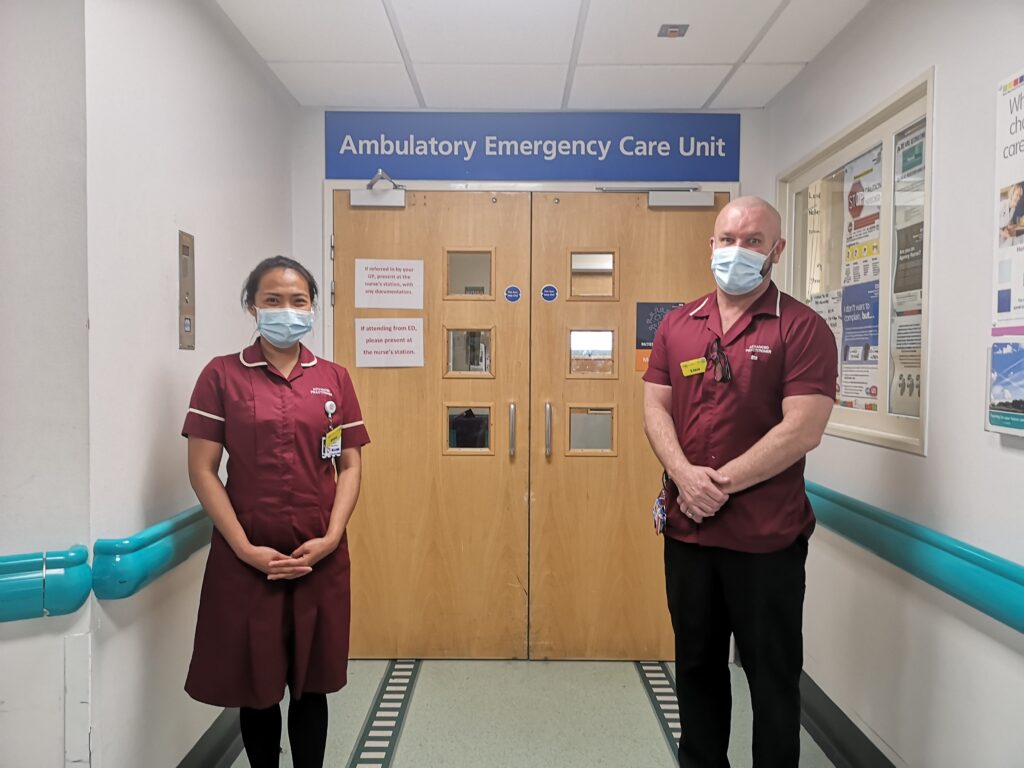
Advanced Clinical Practitioners, Mary Erica Diaz-Santos and Liam Duffy from the Ambulatory Emergency Care Unit
A bespoke service for asthma patients in the Blackpool and Fylde region has been celebrated as a success after the pathway reduced hospital admissions.
Blackpool Teaching Hospital’s Trust have implemented a number of additional pathways to ensure that patients receive safe and effective care, particularly by utilising the Trust’s Same Day Emergency Care (SDEC) teams. The aim of SDEC is to ensure patients get seen earlier and receive treatment within a day, and this has been particularly effective in helping asthma patients.
The specialist Asthma pathway sees patients arrive in the Emergency Department for initial checks, before being fast-tracked to SDEC, where the patient’s asthma history and background is investigated, a specialist asthma clinician can then assess and decide the right course of treatment for the patient, with the aim of getting them home on the same day – reducing the need for a hospital bed.
One of the key advantages of seeing asthma patients early is that where possible, specialist care can often reduce the requirement for the patient to use a nebuliser. Laurel Murphy, Deputy Head of Transformation and Senior Programme Manager at Blackpool Teaching Hospitals said: “Traditionally when a patient has presented at the emergency department with asthma complications, the natural treatment course has been to do a nebuliser. This automatically means that the patient has to be in the hospital for a period of four hours, because they need a period of observation.
“By getting the patient into the SDEC earlier, we can get them seen by a medic earlier and make a different treatment plan, and this can improve their outcomes.”
The success of the asthma pathway has seen the Ambulatory Emergency Care Unit achieve their targets for asthma patients for the first time in six months this March, and that 59 per cent of asthma patients were avoided.
“It’s a much better patient experience,” said Catherine Wild, Transformation Manager. “The key to the success is that by coming through to Same Day Emergency Care you won’t get put onto a pathway whereby you end up being admitted to hospital.
“Ideally we want to avoid admissions to hospital and allow people to remain in their own homes. If that means that patients require a GP appointment, or a follow up appointment, we can make those arrangements.
“It’s beneficial for everyone. The patient gets a specialist treatment, quicker than they might have waiting around in the Emergency Department, and because we have not admitted them to a hospital bed, there’s less risk of deconditioning.
“The pathway also puts less pressure on our community services, and ideally leaves hospital beds for those who need it most.”